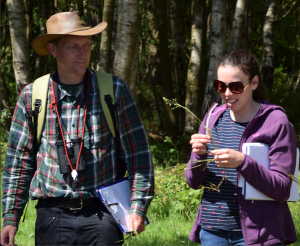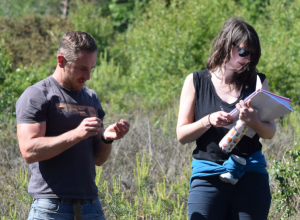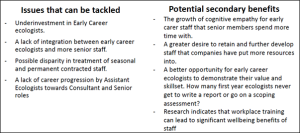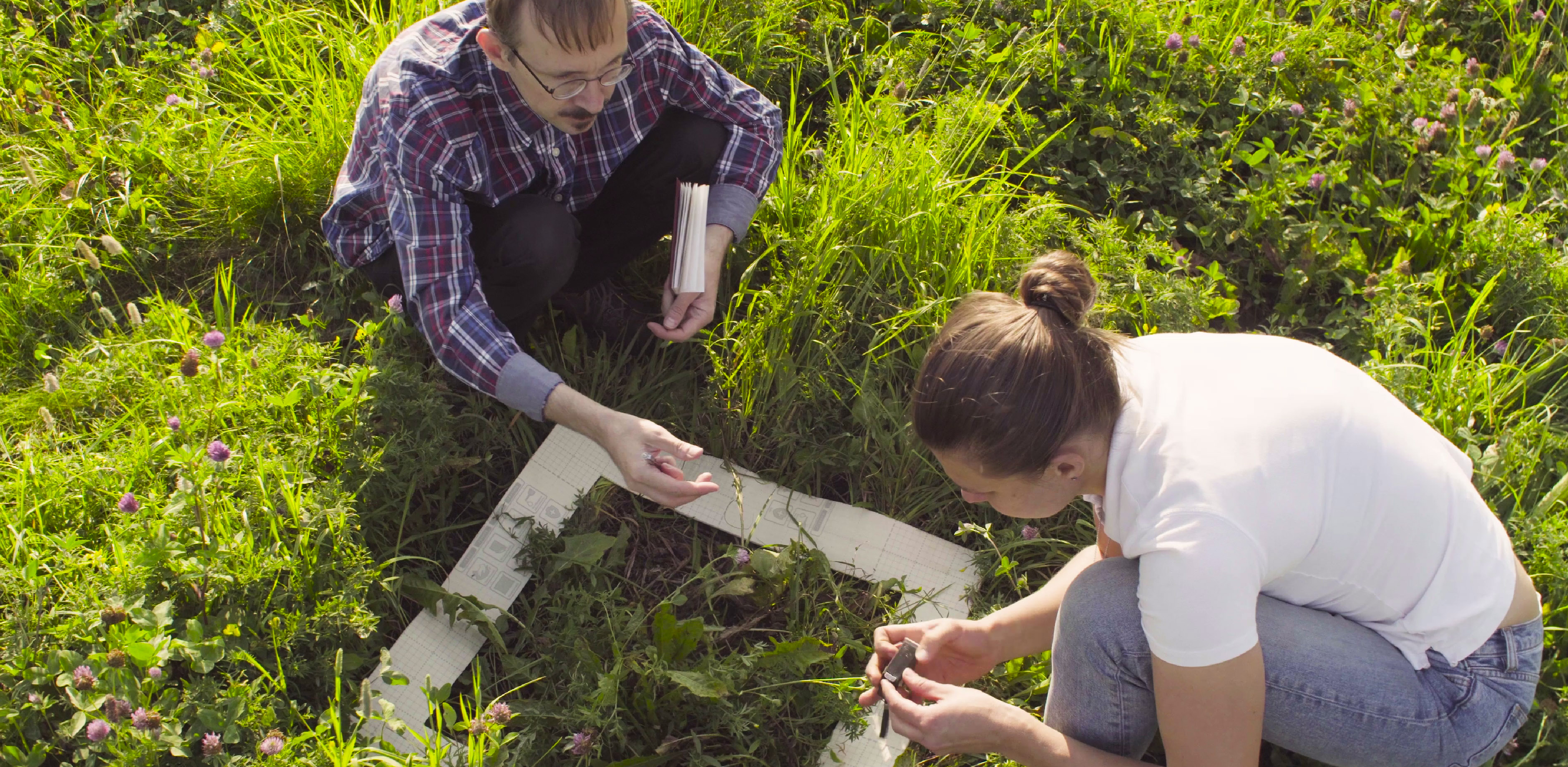On-the-job Training and Early Career Development – by Paul Whitby, BSc MCIEEM CEcol
Cast your minds back to those early years in your career and the most useful lessons you learned, where you picked up the skills you have today and remember how crucial some of that early development was to reaching the next step – your first promotion.
I have spoken with a number of other ecologists on the issue of early career ecologist development and exploitation on Facebook groups, WhatsApp groups and I have read an excellent article on the CIEEM website by Marcus Kohler and an InPractice articles by Tilly Tilbrook (March 2021) and Sally Hayns (June 2022). I agree with the concerns others have raised and indeed it is the overwhelming consensus within the industry that we must improve.
I have since attended three meetings arranged by CIEEM to look at the issues surrounding assistant/graduate ecologist exploitation and development, with a combination of poor working conditions and underinvestment in staff development leading to the stifling of career progression. It is also clear that presently, there is a shortage of experienced ecologists industry-wide as a result.
It was following the last of these meetings that an idea struck me. One which I hope could lead to an improvement in the quality of training that early career ecologists receive, improved prospects for professional development and indeed the better treatment of new staff. It is entirely centred around in-house and on-the-job training.
With that in mind, I’ll draw you back to those memories of when you were first starting out in ecology. If like me, your degree wasn’t titled ‘Applied Ecology for Consultants’, then I imagine your survey skills were lacking and your dissertation looked nothing like a Preliminary Ecological Appraisal (PEA) report. I can recall a number of very useful training courses I have attended, but most of what I know now I have learned on the job. I learned from colleagues in the field (here come some shout-outs!), like a week of water vole surveying with James Pattenden, PEA and great crested newt (GCN) surveys with my line manager Tom Smith and learning to identify bat roosts with my brother, Dan (ecology runs in the family). Those experiences were all in the first three years of my career and those survey skills are still with me another 15 years later. If you are an ecologist with knowledge that you can pass on, then what I want to inspire in you is the opportunity to be a great teacher and leave your mark on someone else’s professional development.
What I have proposed to CIEEM and I hope will be considered in the future, either through a formal accreditation or within your own company policy, is an early career ecologist training plan that aims to ensure ecologists in their first full time role are achieving 120 hours of training a year for the first 2 years of their career – I think we can all agree that the mandated 30 hours of Continuing Professional Development (CPD) as a CIEEM member is not enough to furnish you with a sufficient grounding in ecological consultancy when you first come into the work place. This may sound costly, however with a greater focus on unstructured learning and what we refer to as ‘work shadowing’, it doesn’t have to be.
A t The Ecology Co-op, work shadowing has been a strong focus of development and it has proved fruitful for both the company and our employees as individuals. Last year we set targets for three of our staff members to each shadow 40 bat scoping surveys and lead on the report writing as part of their development towards attaining their Level 1 bat licence. Following additional focussed training, they are now undertaking surveys themselves at the high standard required of them by both the company and other bodies/organisations. Every GCN survey, dormouse check, PEA, botanical assessment, badger survey, work implemented under a European Protected Species (EPS) mitigation licence etc. – these are all opportunities for learning. Where training is provided on the job, that can contribute towards CPD. Targets for learning in different fields of expertise can help to ensure that there is variety in the training offered, and the hours are not meaninglessly allocated to a single discipline. Working in ecology should include variety from year 1.
t The Ecology Co-op, work shadowing has been a strong focus of development and it has proved fruitful for both the company and our employees as individuals. Last year we set targets for three of our staff members to each shadow 40 bat scoping surveys and lead on the report writing as part of their development towards attaining their Level 1 bat licence. Following additional focussed training, they are now undertaking surveys themselves at the high standard required of them by both the company and other bodies/organisations. Every GCN survey, dormouse check, PEA, botanical assessment, badger survey, work implemented under a European Protected Species (EPS) mitigation licence etc. – these are all opportunities for learning. Where training is provided on the job, that can contribute towards CPD. Targets for learning in different fields of expertise can help to ensure that there is variety in the training offered, and the hours are not meaninglessly allocated to a single discipline. Working in ecology should include variety from year 1.
This idea sets out a simple solution to early career training, but it might not be obvious how this would help with the issue of exploitation. As a manger myself, I know that investing time and energy into helping your staff develop ensures you have a closer personal connection and healthy working relationship with them, and of course, only a fool would risk losing a staff member that they have put so much investment into. Where the pandemic and successive lockdowns meant that training courses were cancelled or moved online, as a company we really felt that the value of being out in the field grew staff relationships and resulted in some really positive feedback.
I have set out below the key benefits that I consider an industry accepted in-house accreditation could deliver. The primary purpose of this would be to recognise, instil and develop peer-led training within companies/organisations, ultimately contributing to better working conditions, greater investment of time and resources in personnel and subsequent advancement in the careers of those joining the ecology sector.

If you are a manager, whether it is a large team, or you are just thinking of employing someone for the first time – think about that opportunity you have to leave a positive mark on someone’s development.
Paul Whitby, BSc MCIEEM CEcol
 Paul is the Managing Director at the Ecology Co-op, a CIEEM Registered Practice that operates across southern England. His working experience extends across a wide range of terrestrial habitats and species and in addition to many years working in consultancy he has worked with a range of landowners on implementing Higher Level Stewardship Schemes. Paul is a Sussex Bat Group and Sussex Botanical Recording Society member and volunteers his time as an assessor of Chartership applications for CIEEM. He has run a course titled ‘Early Career Training – Getting into Ecological Consultancy’, which was aimed at early career ecologists.
Paul is the Managing Director at the Ecology Co-op, a CIEEM Registered Practice that operates across southern England. His working experience extends across a wide range of terrestrial habitats and species and in addition to many years working in consultancy he has worked with a range of landowners on implementing Higher Level Stewardship Schemes. Paul is a Sussex Bat Group and Sussex Botanical Recording Society member and volunteers his time as an assessor of Chartership applications for CIEEM. He has run a course titled ‘Early Career Training – Getting into Ecological Consultancy’, which was aimed at early career ecologists.
Blog posts on the CIEEM website are the views and opinions of the author(s) credited. They do not necessarily represent the views or position of CIEEM. The CIEEM blog is intended to be a space in which we publish thought-provoking and discussion-stimulating articles. If you’d like to write a blog sharing your own experiences or views, we’d love to hear from you at SophieLowe@cieem.net.
